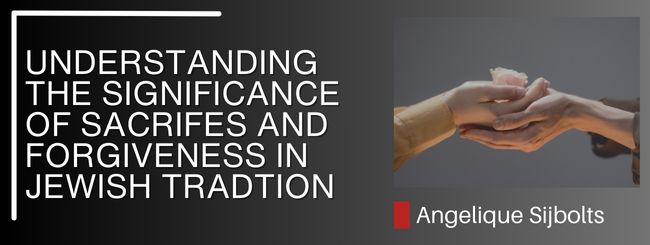בס”ד
PARSHAT VAYIKRA 5784
The Torah portion of this week deals, among other things, with the sin offering, “karban chatat”. This offering was required of Israel for unintentional sins. In broad terms, we see that a specific animal is offered to the Eternal in a particular manner. For example, the blood is sprinkled before the veil, smeared on the horns of the altar, and the entire animal is burned.
Four scenarios are described, summarized schematically as follows:
- Priest: Young unblemished bull
- Member of the Sanhedrin: Young unblemished bull
- Prince of the people: Young unblemished male goat
- Common individual: Young unblemished female goat
Unintentional sins lie between intentional sins (where one consciously commits a wrongdoing) and involuntary sins (such as reflexes or coercion). Intentional sins cannot be atoned for by an offering, and involuntary sins do not require an offering.
There are various interpretations as to why Jews must give a sin offering. One suggests that bringing an offering must compel one to see the animalistic aspect of oneself in the slaughtered animal. Unintentional sins can then be understood as actions performed without thought, on an animalistic level. By offering the animal, one symbolically shows a desire to rid oneself of actions at this level. The blood, representing life, is brought to the altar, while burning the animal symbolizes bringing the fire of piety into the world. This process aims not only for self-improvement but also to inspire the world to serve the Eternal in the right way.
Leviticus 1:2 reads:
The word “any one” in Hebrew is “Adam” אָדָ֗ם. When bringing an offering to the Eternal, one must follow Adam’s example. His offerings were flawless, free from any form of dishonesty. They could not deceive or be used to demonstrate superiority over others. He gave the best, in the most honest way.
Non-Jews do not need a sin or guilt offering to receive forgiveness, as illustrated by the story of Nineveh. The people asked for forgiveness and were forgiven. See Jonah 3:9-10
The story of Nineveh illustrates that animal sacrifices are not necessary for non-Jews to receive forgiveness. The people asked for forgiveness and were forgiven (read the book of Jonah). Also for Jews, animal offerings are not always necessary for forgiveness. Consider King David after he sinned with Bathsheba and asked for and received forgiveness, see II Samuel 12:13
In short, in prayer, we must be honest with the Eternal, naming the things we do without thinking, thereby learning to understand, control, and, where necessary, kill our animal instincts. This elevates our soul and brings us closer to the Eternal. Our soul comes closer because we increasingly realize that one must think before acting, a lesson in being human.
When our soul comes closer to the Eternal, it wants to be forgiven for the wrong choices it has made. Asking for forgiveness is done by confessing aloud to G-d what you have done wrong, promising not to make these wrong choices in the future, and, where possible, cleaning up the mess you have made. In addition, when asking for forgiveness, it is good to give Tsedaka – charity.
That giving Tsedaka forgives transgressions, for example, is seen in:
Hosea 14:2-3
Isaiah 55:7
In addition to confessing sins and praying to the Eternal, giving Tsedaka is a means of obtaining reconciliation for sins, as written in Proverbs 11:4 and Proverbs 21:3:
Wealth is of no avail on the day of wrath, But righteousness saves from death. | לֹא־יוֹעִ֣יל ה֖וֹן בְּי֣וֹם עֶבְרָ֑ה וּ֜צְדָקָ֗ה תַּצִּ֥יל מִמָּֽוֶת |
To do what is right and just Is more desired by the L-RD than sacrifice. | עֲשׂה צְדָקָ֣ה וּמִשְׁפָּ֑ט נִבְחָ֖ר לַי”הוָ֣ה מִזָּֽבַח |
The story of Nineveh illustrates that animal sacrifices are not necessary for non-Jews to receive forgiveness. The people asked for forgiveness and were forgiven (read the book of Jonah). Also for Jews, animal sacrifices are not always necessary for forgiveness. Consider King David after he sinned with Bathsheba and asked for and received forgiveness.
Learning Points
- Significance of Offerings: Clarifies the purpose and symbolism of offerings in Judaism, particularly focusing on the sin offering “karban chatat” for atoning unintended sins.
- Importance of Confession and Repentance: Emphasizes the crucial role of confession, repentance, and seeking G-d’s forgiveness as integral aspects of spiritual growth and relationship with the Almighty.
- Forgiveness and Charity: Highlights the belief that forgiveness can be attained through genuine repentance and acts of charity (Tsedaka), as illustrated in biblical stories and passages, including the story of Nineveh in the book of Jonah.
By Angelique Sijbolts
Sources
The Sin Offering by Rabbi Lord Jonathan Sacks
How Annimal Offerings Help Us Tap Into the Divine Presence by Rabbi Avi Geller
The Meaning of Sacrifice by Rebbetzin Esther Jungreis
The Divine Code byRabbijn Moshe Weiner
Lets Get Biblical Part 1 by Rabbijn Tovia Singer.
© Copyright, all rights reserved. If you enjoyed this article, we encourage you to distribute it further.
Our blogs may contain texts/ quotes/references/links of
Mechon-Mamre.org, Aish.com, Sefaria.org, Chabad.org AskNoah.org
that contain copyrights and which we may use with there permission.
